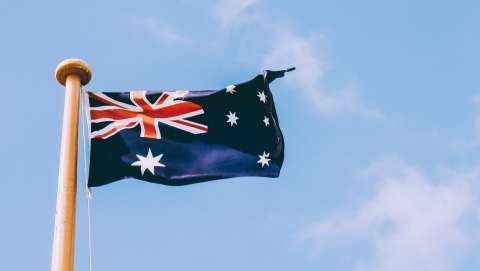The true cost of the COVID-19 pandemic is almost impossible to measure.
We can identify the number of lives lost as a direct result of COVID-19, with 22, 887 COVID-19 deaths being reported in Australia. We can also establish the direct economic cost, with the Australian Bureau of Statistics reporting last year that Australian GDP is estimated to have suffered a cumulative loss of $158 billion compared to its pre-pandemic trajectory.
But the direct health and economic impacts alone do not reflect the full picture. The broader human cost of the pandemic – such as families being separated by border closures and lockdowns, Australians being unable to return home from overseas, and schools being closed – was substantial. It impacted the lives of individuals and communities in many different ways.
To try and keep each other safe, Australians lived with some of the most restrictive pandemic response measures in the world.
Understanding these broader impacts – the full human cost of the pandemic – is vital for ensuring a more effective response for future public emergencies. So it is disappointing that these wider concerns are not a direct focus of the COVID-19 Pandemic Inquiry that was announced by the Prime Minister last week.
The inquiry reflects a number of missed opportunities. Firstly, human rights are not expressly mentioned in the inquiry’s terms of reference. The specific areas of review that are listed – which include governance, health response measures and financial, community and international policy supports – are not exclusive, which means that the Independent Panel may choose to include a focus on human rights as part of the inquiry. I hope that they do.
But failing to clearly require that a human rights lens be placed across this inquiry risks producing a final report that does not fully capture the human cost of the pandemic.
An express requirement to consider human rights within the terms of reference would ensure the Inquiry would explicitly consider whether each of the restrictions imposed on Australians were both necessary and proportionate.
This failure is exacerbated by the second missed opportunity, namely, the express exclusion of actions taken unilaterally by state and territory governments from the scope of the inquiry. This decision means key aspects of Australia’s pandemic response which were the responsibility of state governments – such as lockdowns, state borders closures and vaccination mandates – may remain unexamined.
Australia is a federation, and our review of the pandemic should reflect this.
I welcome the fact that an independent inquiry is being held. But if we want Australia to be better prepared for future emergencies, we need an inquiry that is comprehensive and able to thoroughly review every aspect of Australia’s pandemic response, including the actions of all levels of government.
It is simply not possible to assess the impact of the pandemic fully if the inquiry looks only at what was done by the Federal Government. The Australian pandemic response was driven by complex interactions between Commonwealth, state and territory governments that all had overlapping responsibilities. The role played by National Cabinet also needs to be part of any assessment. An inquiry that excludes actions taken unilaterally by state and territory governments can only ever reveal part of this picture.
That is why any effective inquiry into Australia’s pandemic response has to be able to cross jurisdictional lines. We need every part of our federation working together to ensure we can better respond to future emergencies.
For these same reasons I believe a Royal Commission should be the preferred option. To examine Australia’s pandemic response properly, we need an inquiry that has powers to request documents, summons witnesses, and hold public hearings. It also needs to be established jointly by federal and state governments so that it truly has the capacity to undertake a comprehensive examination of the overall pandemic response in Australia.
When the former Prime Minister of New Zealand, Jacinda Ardern, announced New Zealand’s Royal Commission into the pandemic response last December, she highlighted that a Royal Commission ‘is the highest form of public inquiry’ and was ‘the right thing to do’ given the significant threat that had been posed by the COVID-19 emergency. The same reasoning applies to Australia.
It has been well over 3 years since the Australian Government first declared a human biosecurity emergency in response to the emerging COVID-19 pandemic. The impact of the pandemic on all our lives – including the substantial impact on our human rights – needs to be properly understood if we are to improve our preparedness for future emergencies.
I welcome an inquiry into Australia’s pandemic response. But to be effective, it needs to be comprehensive and to examine the broader human cost of Australia’s pandemic measures.







